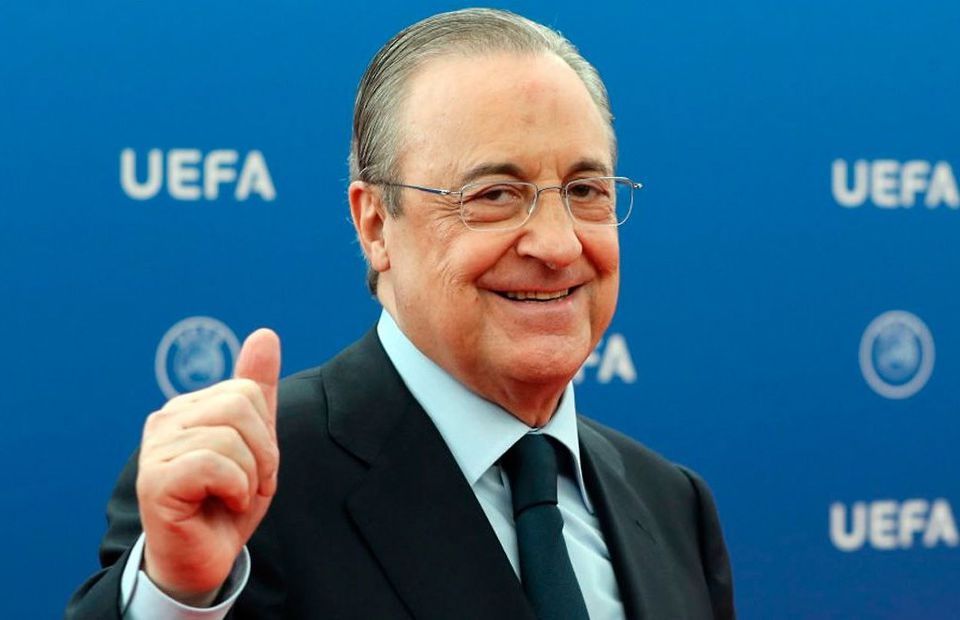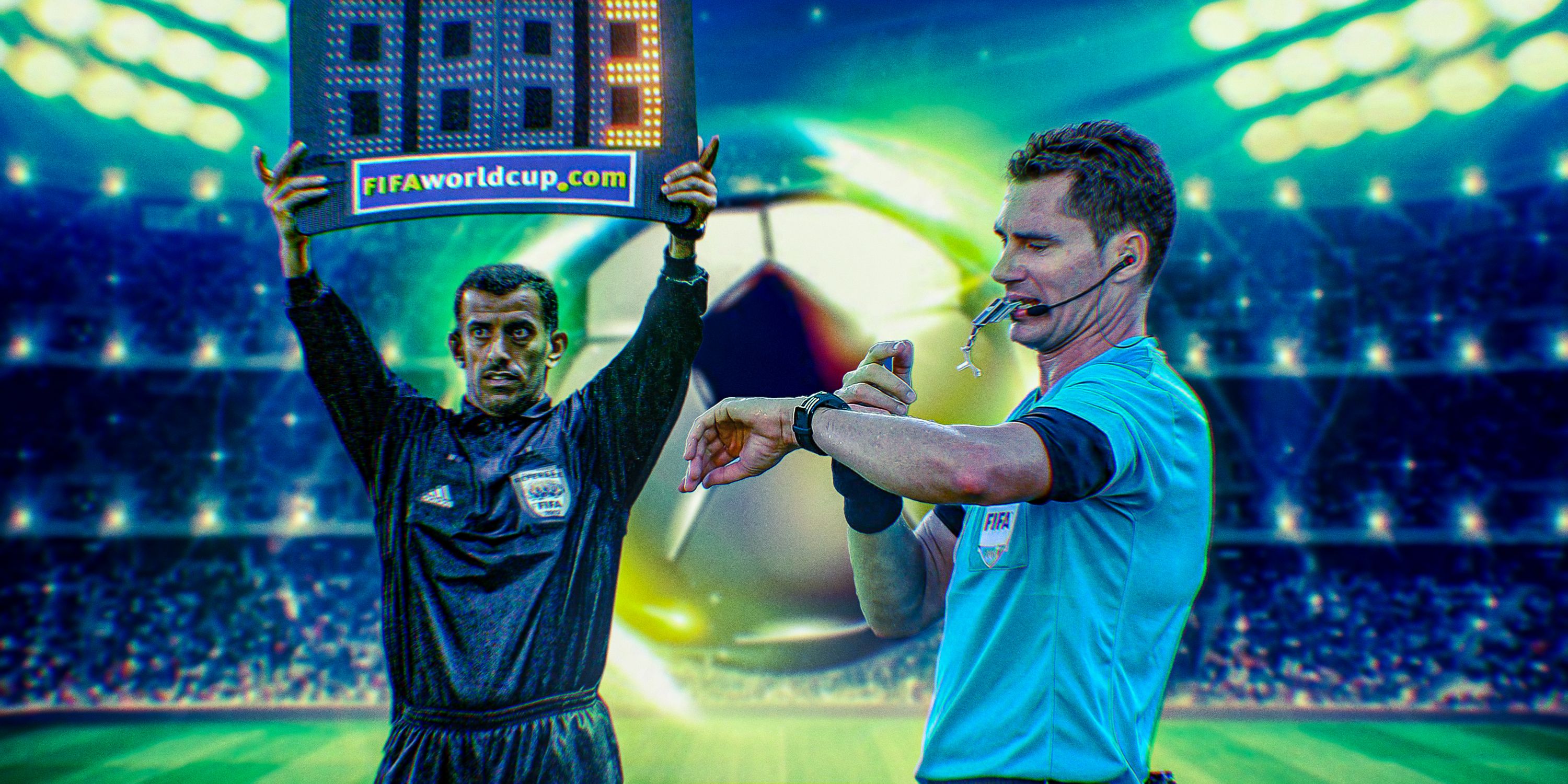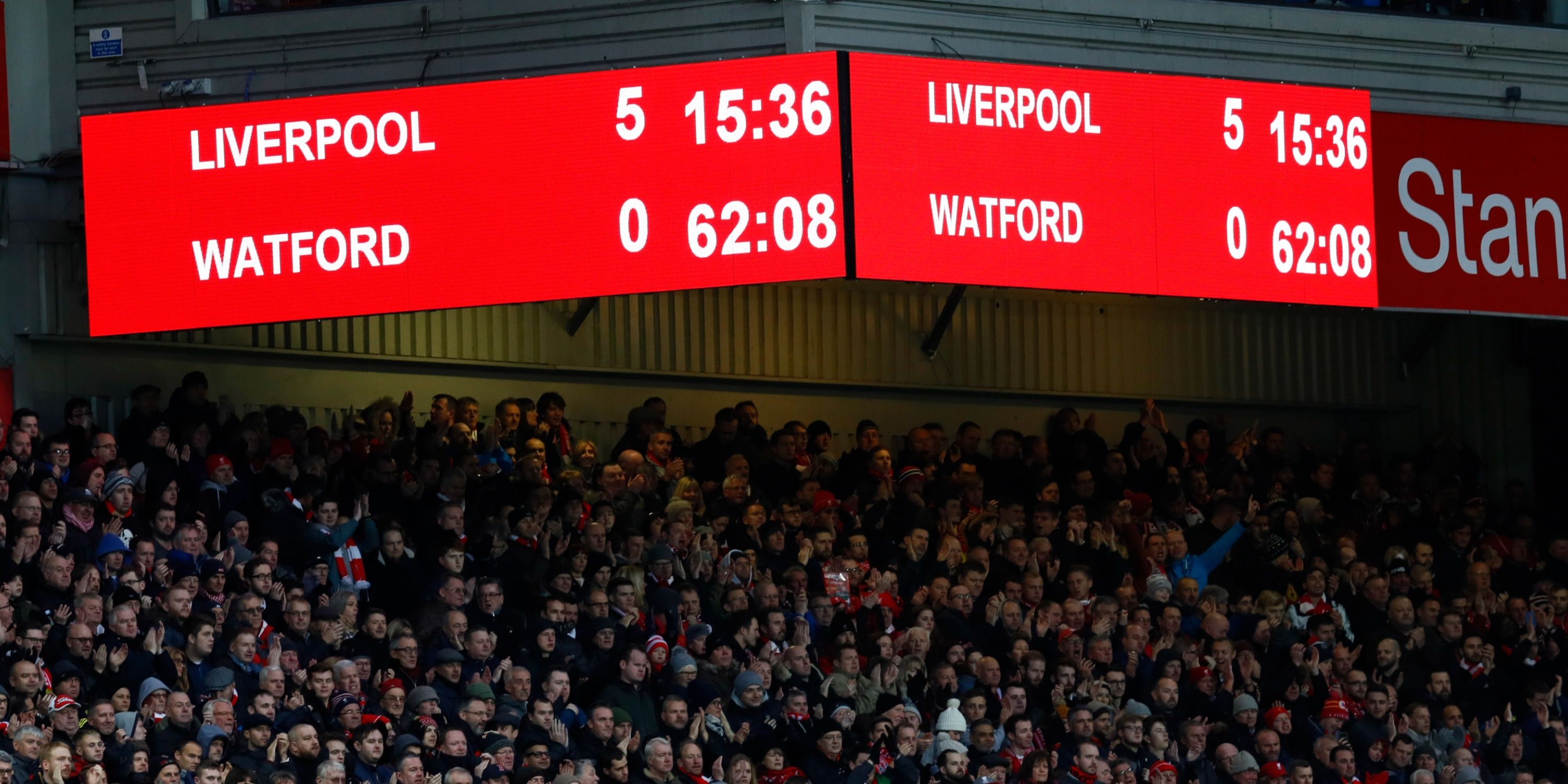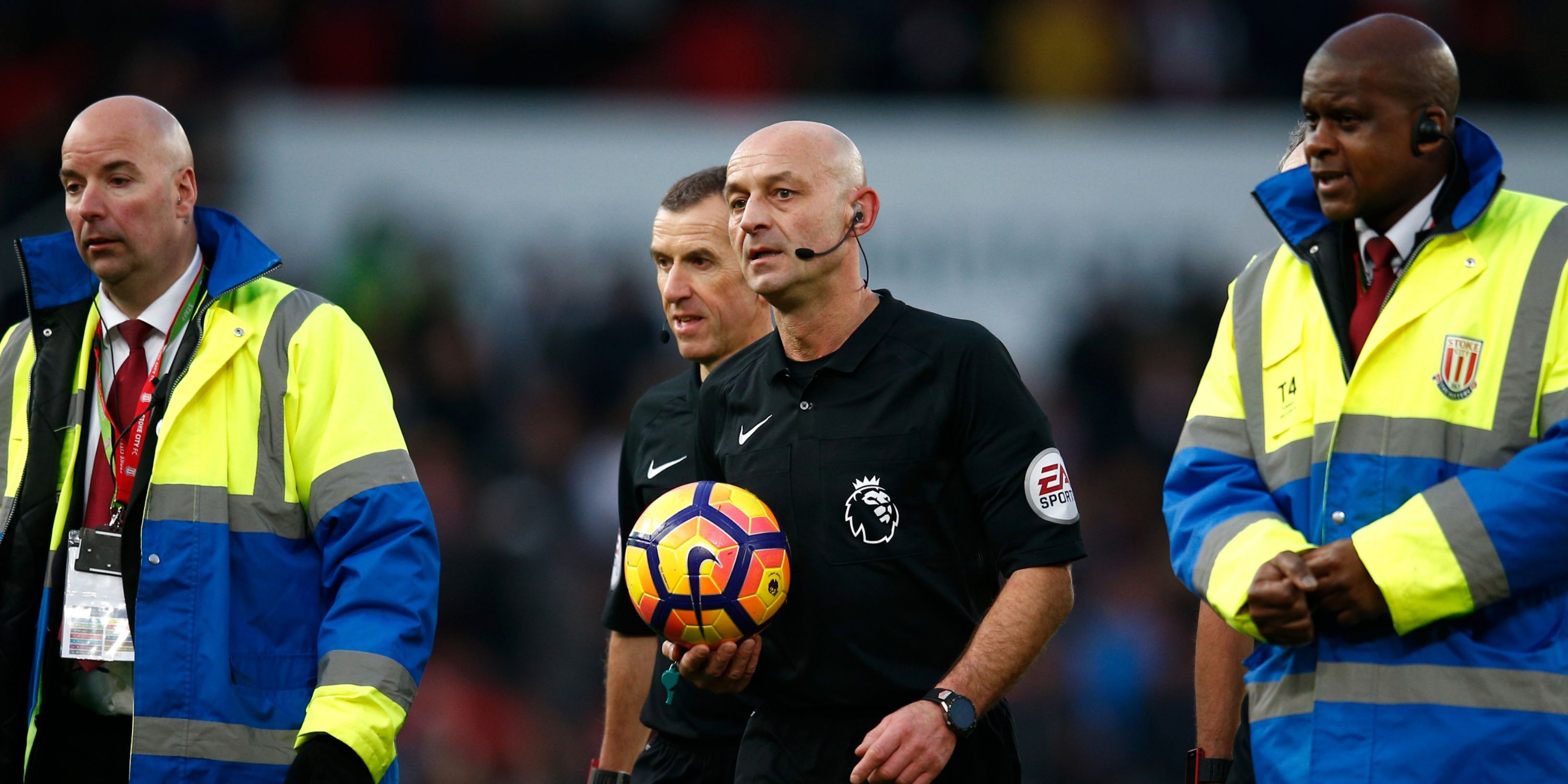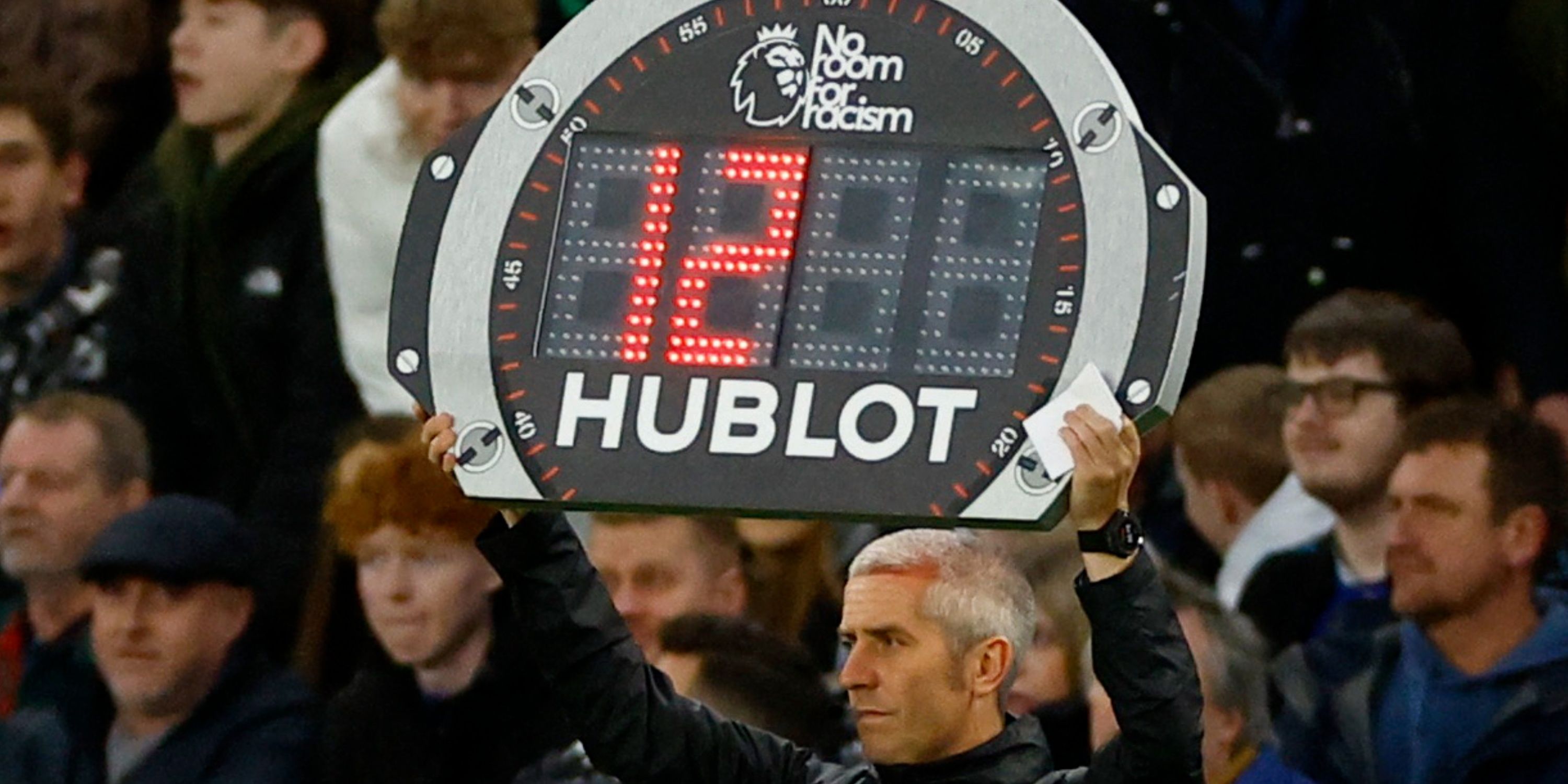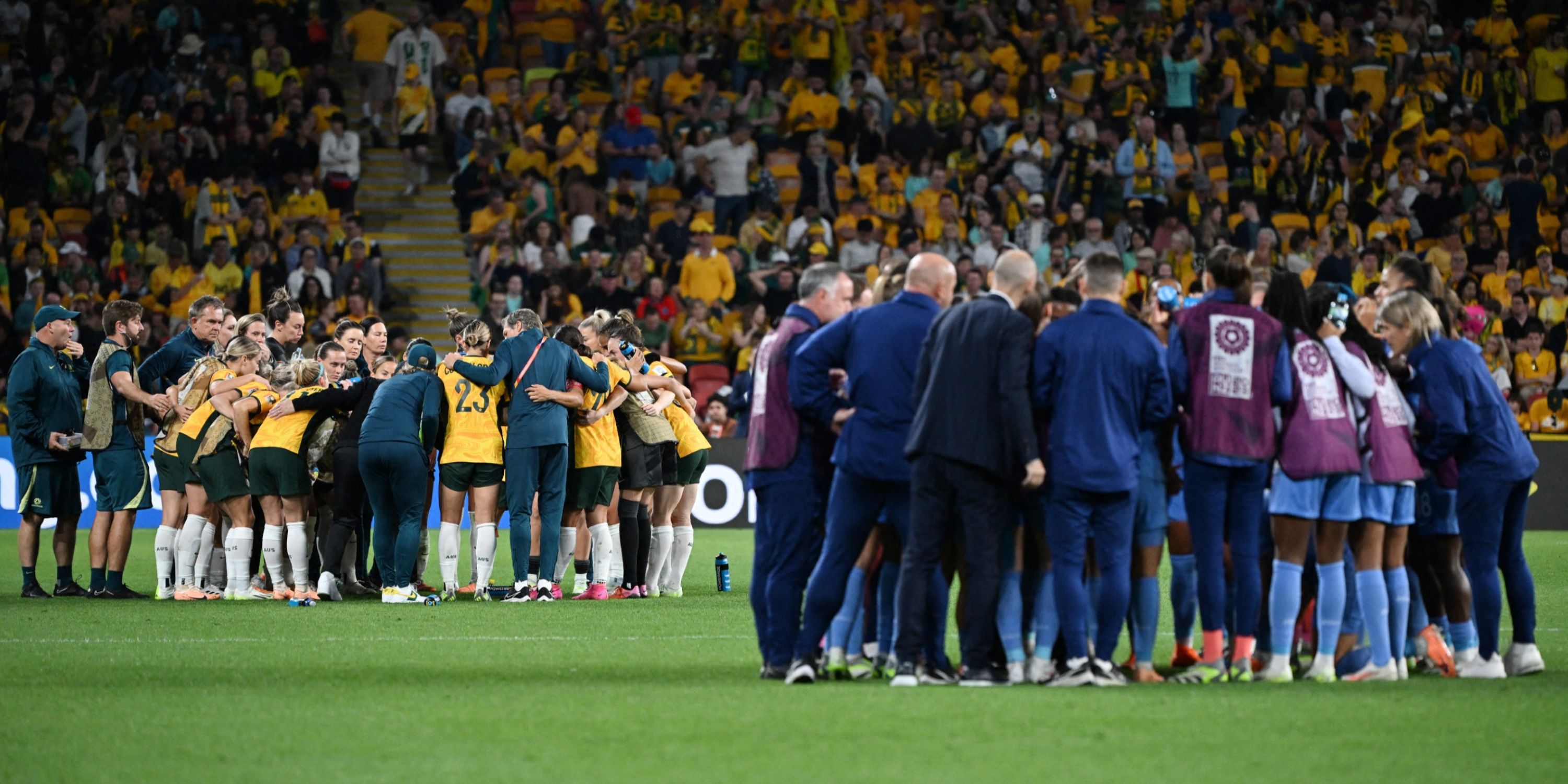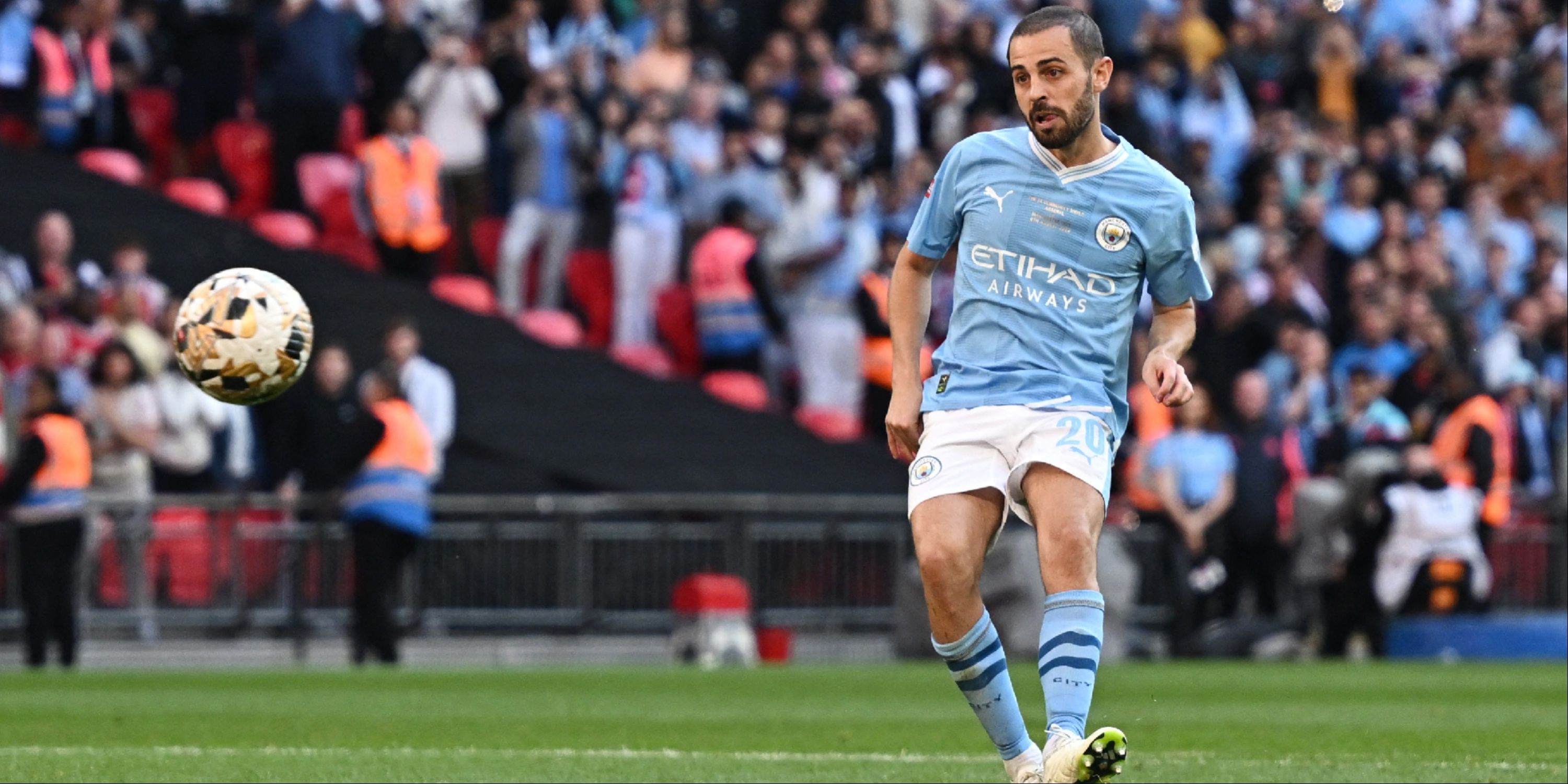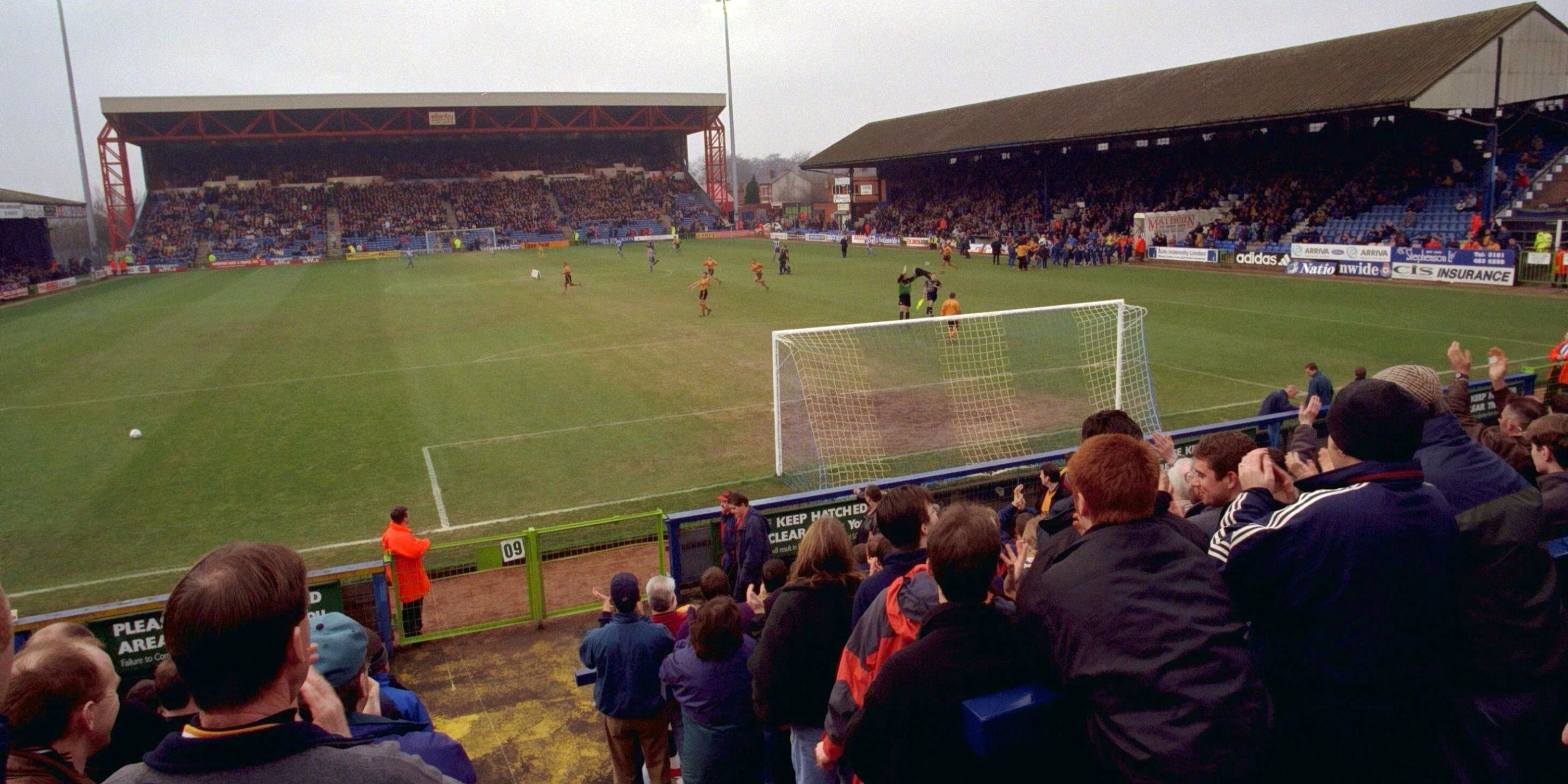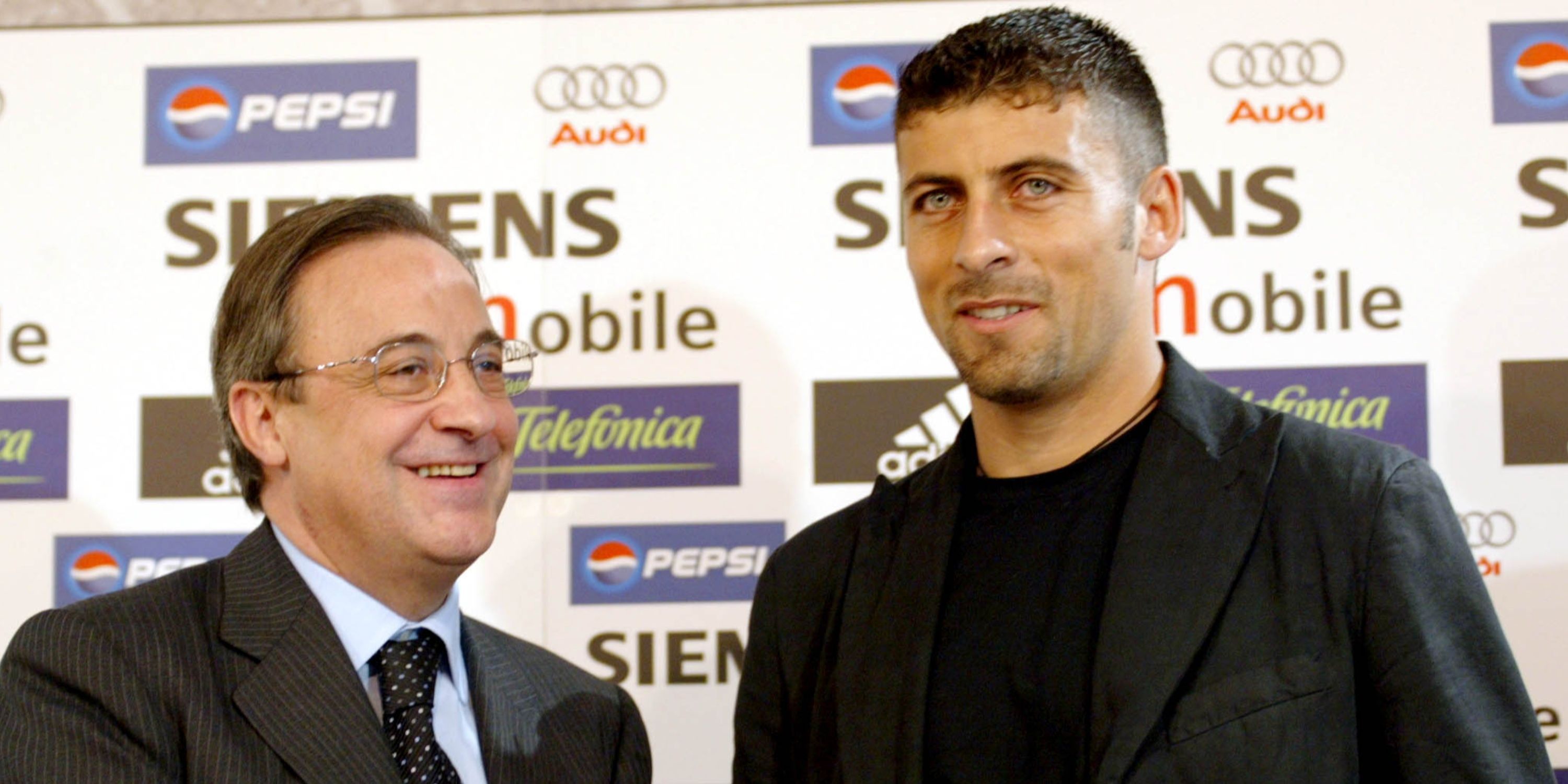Quick Links
Highlights
- Soccer is the most popular sport in the world, continually bringing in new fans.
- The rules have changed drastically over the past 100 years, with new plans in place.
- This article has everything you need to know about the length of a match, extra time and penalty shootouts.
Soccer is the most popular sport in the world. It has an estimated 3.5 billion fans around the world, and that number is only going to grow as the years tick away. From added-time drama to last-day survival, it is one of the most entertaining and dramatic sports in the world. It brings intrigue to new fans and old, as they support their team to the final touch of the ball.
However, some of the most dramatic moments come in the dying seconds. Sergio Aguero's title-winning goal for Manchester City against Queens Park Rangers, on the final day of the 2011/12 Premier League season, came in the 94th minute. That goal wouldn't have happened if the on-field officials decided to award less added time.
The role of the officials is key - as showcased then - but the true rules surrounding the length of soccer matches can be confusing, particularly if you are new to the sport. Here's everything you need to know about time-keeping when it comes to the beautiful game.
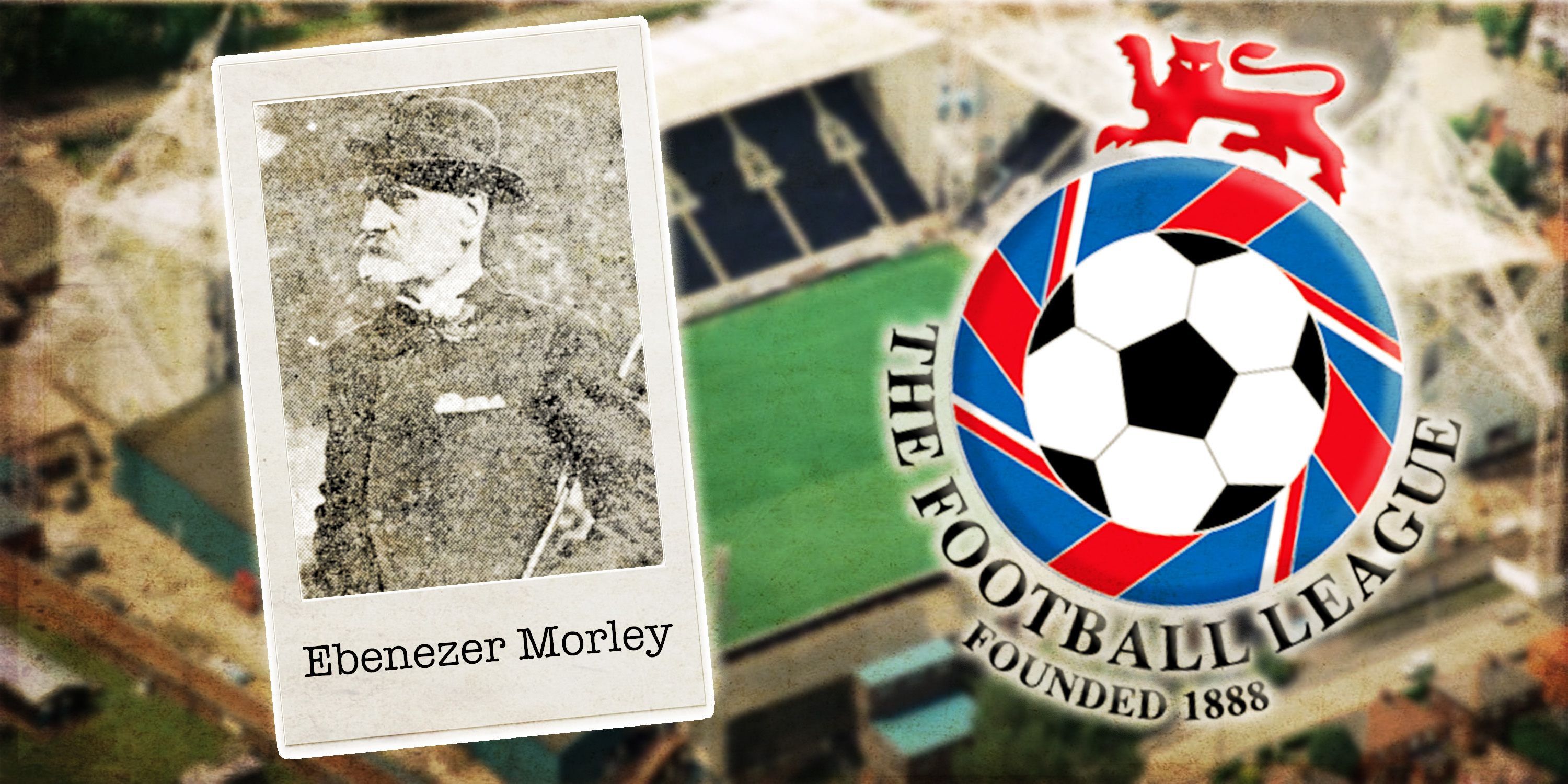
Football inventors: The true origins of soccer
Football's origins can be traced back thousands of years into history. But who specifically invented it?Length of a Soccer Match
90 minutes
A soccer match is officially 90 minutes long, divided into two 45-minute halves. The clock continues to tick away - even if there are injuries - so any time lost to stoppages will be tacked on by the referee to the end of each half. It's a simple idea, and it allows fans to quickly understand how long is left.
The 45 minutes of action in each half is often fast-paced, leaving you on the edge of your seat as teams attack from one end to another. The rules are simple, with only the controversial decision of stoppage time changing fans' opinions.
|
Soccer Match Length |
|
|---|---|
|
First Half |
45 minutes |
|
Second Half |
45 minutes |
|
Full Length |
90 minutes + added time |
Half-Time
15 minutes
Half-time is 15 minutes long. It's the set number in every single soccer match and never changes. Unlike in America, where half-time is often longer to fit in a concert or performance, half-time in soccer is always a quarter-hour. It provides managers with the opportunity to give a team talk and change tactics. Players can be given one-on-one advice by the manager of first-team staff, which can be motivational or tactical - or they even ask for a player's shirt! That's the beauty of soccer - so many aspects can change with the flick of a switch.
For fans, it provides an opportunity to take a break from the stands if they are at the match. In England, it is a common sight to see fans go for a 'half-time pint', quickly downing it before rushing back to the stands as alcohol cannot be consumed in view of the pitch. It's part of the DNA of English soccer, while the entertainment at half-time is often very low-key. There might be an interview with a former player or even a kids' soccer match, but it will never be on the scale of American and American Football.
Added Time
Varies each match
Stoppage time has no set length. That might sound complicated, but it is decided on a game-to-game basis. If there are no injuries and the ball continually stays on the field, there will be minimal stoppage time; maybe one minute at the most. However, if there is a lengthy delay and excessive time-wasting (purposefully slowing down the speed of the match), there will be lots of stoppage time.
It is decided by the on-field referee and the fourth official (on the sidelines). They communicate with one another, with the fourth official lifting a screen in the air to showcase how long stoppage time will be to the fans in the stadium.
|
Reasons for stoppage time |
|
|---|---|
|
Injuries |
Serious injury delays play. |
|
Time wasting |
Teams waste time on purpose to slow down the tempo. |
|
Medical Emergencies |
If there's an issue in the crowd, as much added time as needed will be used. |
Prior to the 2022 World Cup, soccer fans were accustomed to a minute or two being added on at the end of the first half and three or four minutes at the end of the second half. It became the norm across every league. However, the amount of stoppage time has changed ever since the tournament in Qatar. FIFA's referees committee chairman Pierluigi Collina, considered to be one of the best referees in football history, spoke on the eve of the World Cup about the changes.
Imagine if there are two or three goals scored in a half, it’s easy to lose three, four or five minutes just to goal celebrations. This time has to be considered and compensated at the end and, in addition, the time lost due to VAR intervention. During matches in Russia (at the 2014 World Cup), it became quite normal to have the fourth official showing the electronic board with seven, eight or nine minutes on it. The purpose is to offer more show to those who are watching the World Cup.
The 2023/24 Premier League season has been the longest on record. Referees have added on an average of more than 11 minutes across both halves of football. Across the 2022/23 campaign that figure stood at eight minutes and 27 seconds, which itself was an increase compared to past seasons.
Extra Time
30 minutes of fatigue
|
First half |
15 minutes |
|---|---|
|
Second half |
15 minutes |
|
Penalty shootouts? |
Used if still level at full-time |
Extra time is 30 minutes long and is used in the event of a draw after 90 minutes in a tournament competition. There are 15 minutes of play, a short break and then another 15 minutes of play. If the two teams are still level after the additional half-hour, the sides take part in a penalty shootout.
For example, in the knockout stages of the World Cup, extra time is used. Meanwhile, the latter stages of any domestic cup competition use extra time, most notably the FA Cup and Champions League. The tempo of the match is often slower in extra time, as fatigue kicks in and tiredness builds across the pitch. It is very rarely entertaining, despite the drama in extra time at the 2022 World Cup final between France and Argentina.
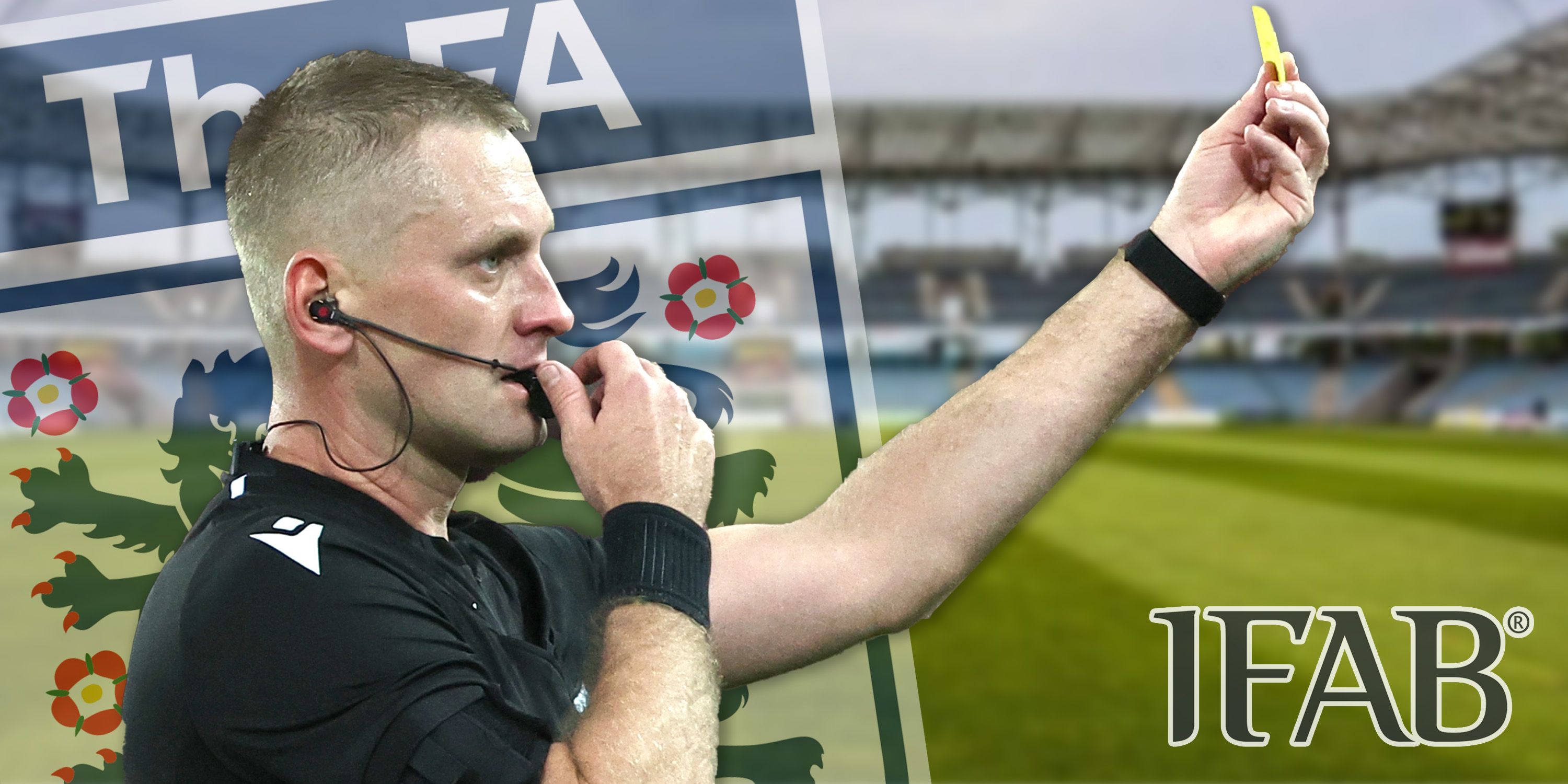
Sin bins in football explained: How they will work in soccer
Here's how this potential new rule would be implementedPenalty Shootout Rules
Use of sudden death
A penalty shootout is used if the two teams are level after 120 minutes. It brings in a huge mental challenge - as well as a physical one - as players try to outsmart the goalkeeper and pick their spot. Penalty shootouts are widely seen as the most tense situation for players in the world.
With one single swat of the ball, players can become heroes forever. However, on the other hand, they can become villains if they sky their penalty over the bar. It's most outfielders' worst nightmare, particularly during finals when the stakes are even higher, but some goalkeepers have acquired legendary status for their performance in penalty shootouts.
|
Step |
Process of a penalty shoot-out |
|---|---|
|
1. |
A coin toss determines which team takes the first penalty. |
|
2. |
Both teams take five penalties each. |
|
3. |
A different player must take each penalty. |
|
4. |
A winner is decided once each team has taken five penalties each - or if the lead is insurmountable after four penalties are taken, for example. |
|
5. |
If the teams have the same number of goals after five taken each, the shootout continues in a sudden-death format. |
|
6. |
The cycle continues around - and each player can take another one after every player has had a shot - until a team leads after an equal number of penalties. |
Longest Soccer Match Ever
Stockport County vs Doncaster Rovers - 1946
|
Date |
30th March 1946 |
|---|---|
|
Length |
3 hours, 23 minutes |
|
Full-time score |
2-2 |
The longest soccer match in recorded history was a match between English clubs Stockport County and Doncaster Rovers at Edgeley Park on 30th March 1946. The duration of the contest was a ridiculous three hours and 23 minutes and the world record has stood for over half a century. The first game ended 2-2, so it went into extra time, but 30 more minutes were insufficient, with the two teams unable to score in that period.
Before penalty shootouts were rolled out across the game, some of the methods used to decide the winner of a match after a 120-minute stalemate included tossing a coin and - as shown in this match - 'play to win'. It was a form of golden goal, which suggested that the match ends after a goal has been scored. In the case of Stockport and Doncaster, though, neither team could find the net, so it carried on until darkness fell. It was only a replay at Doncaster that could separate the teams.
Future Soccer Plans
Florentino Perez's ideas
It is unlikely that soccer matches will ever be truly shortened. The rules might change - as showcased by major amendments in the past 50 years - but it will continue to have a similar length of soccer in play.
Real Madrid president Florentino Perez has previously suggested that he would propose 60-minute soccer matches if the European Super League was ever created. However, the clock would be stopped every time the ball goes out of play, just like it does in rugby union. Speaking to El Chiringuito, Perez said:
[Soccer] has to change and adapt. We have to analyse why young people, 16-to-24-year-olds, 40% of them aren't interested in football. Why? Because there are a lot of low-quality games, and they have other entertainment platforms. It's a reality. They say the games are too long.
We have to change something if we want football to stay alive. Sometimes we don't understand our children or grandchildren. They're different generations and the world changes. If young people don't watch an entire game, it's because it isn't interesting enough, or we'll have to shorten the games. There are matches that even I can't watch all of them, to be honest.
It might sound drastic, but it can be shocking to discover how much of a 90-minute match is taken up by dead-time. During the 2023/24 Premier League season, the ball was in play for an average of 58 minutes. This is less than two-thirds of the theoretical allotment but represents a dramatic increase compared to past seasons after the refereeing directive to increase added time.
